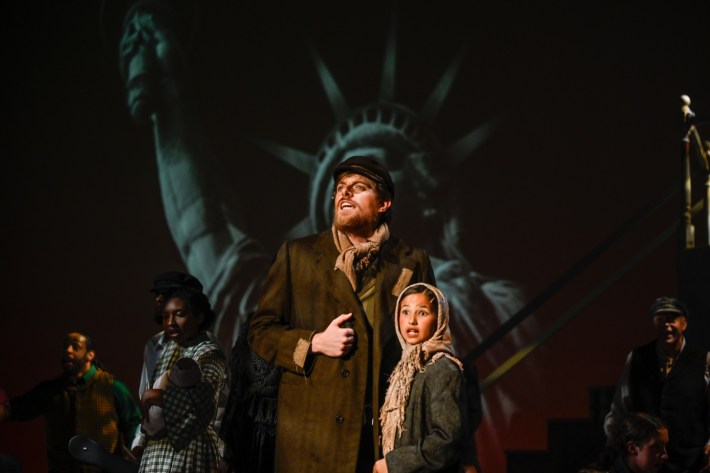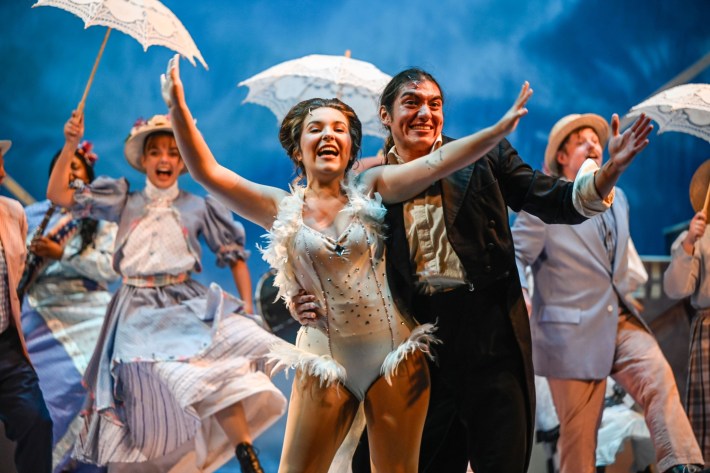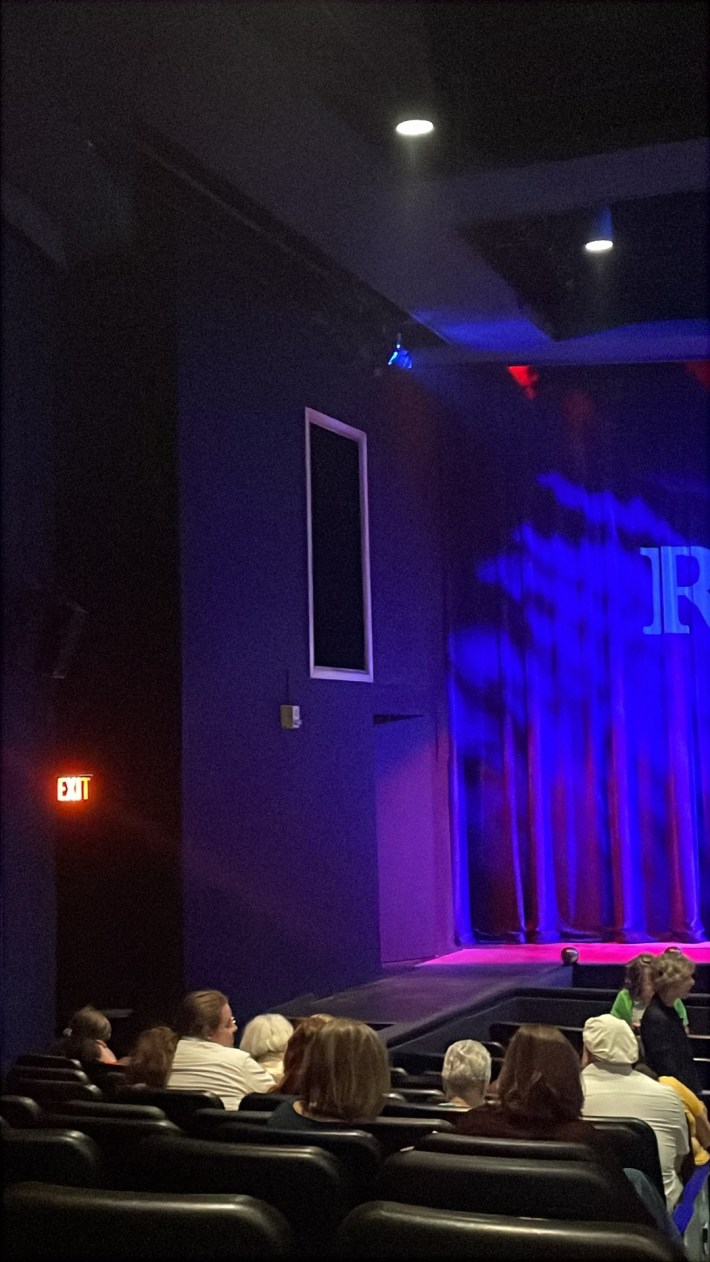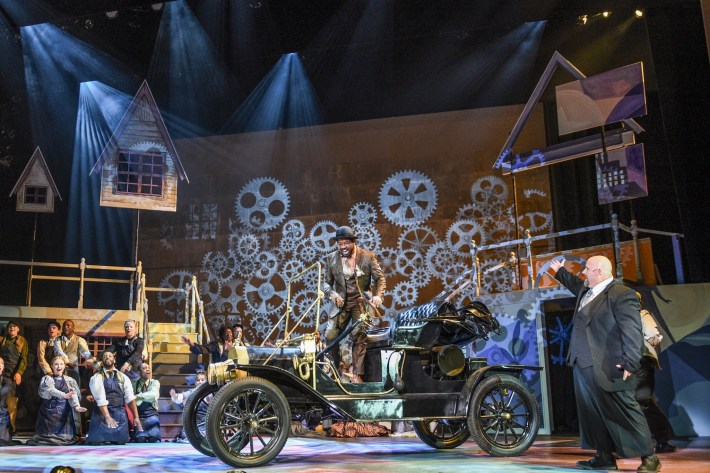TPAC Trust Produces: Ragtime
Tulsa Performing Arts Center, Williams Theatre
August 10, 2025
After a wildly successful and nearly sold out production of Fiddler on the Roof last year, TPAC Produces is back for another big blockbuster summer musical experience, Ragtime. Staged for the first time in Toronto in 1996 before transferring to Broadway two years later, Ragtime captures a moment in American history in which everything was changing: the turn of the century, when anything felt possible. The plot follows three individuals from vastly different backgrounds—an affluent white woman from New Rochelle, a Jewish immigrant from Latvia, and a black piano player from Harlem—and the unlikely ways that their lives collide in New York.
Sara Phoenix takes a second go at staging the musical, after directing it in 2017 with Theatre Tulsa. For this production, she brings back several cast members, including Michael Andreaus, fresh off a Broadway run in MJ the Musical, who reprises his role as Coalhouse Walker Jr.
Even with the celebrity talent on deck, I balked when I saw tickets starting at nearly $60. I see a lot of theatre in town and can usually snag a nosebleed in the Williams Theatre for $30. I got an opening weekend discount and chose a cheaper ticket in the back, which motivated me a little more to attend. However, the opening number made me reconsider my negative sentiment. In about 10 minutes, this competent company delivered energized vocals, precise and stylized staging and choreography on top of a gorgeous, live score. Oh, and an actor escaped from a straitjacket while descending from the ceiling, upside down, before singing his solo. I was hooked.
Both on and off stage, the talent is abundant. Claire Sbanotto’s Mother is precisely elegant and poised, delivering one-liners with a dryness that only stifled, smart mothers can. Sam Briggs carries the heart of this show as Tateh, the Jewish immigrant. His performance has weight, not only in the way that it fills the stage, but also with the emotional gravity infused in his performance. Watching him become disillusioned with the American dream made for real heartbreak.

Andreaus, with his velvety baritone, was a treat to watch as Coalhouse Walker Jr., the Harlem piano player. His confident rendition of the 11 o’clock number, “Make Them Hear You” left me feeling as hopeful as the men he sang it to on stage. He’s paired with the arresting Majeste Pearson, who plays Coalhouse’s lover Sarah. The two characters spend most of act one estranged due to various circumstances, and their slow, dramatic reunion during the song “The Courtship” was so brilliantly staged and beautifully sung, I didn’t realize I was holding my breath until the blackout.
This musical has a big cast with several featured characters; many stood out. Jordan M. Andrews sang so well as Booker T. Washington, I wanted more stage time with him. Marlee Vox brought powerful vocals, especially in act two. Jesse-Lushanya Battice was mesmerizing as Harry Houdini (and if you couldn’t guess it, he was the one who entered while upside down). Ensemble member Themba Ndhlovu, whether playing a dancer at one of Coalhouse’s performances or a trombone player, caught my attention with his effortless moves.

Even the kids in this show were outstanding. During my performance, Betty McElravy and Cash Curry consistently held their own against the talented adult cast as Little Girl and Little Boy, respectively.
On a technical level, the production was decadent. Robin Vest’s fragmented yet versatile set, complete with an American flag that fell apart and came back together again at certain times, served as a powerful backdrop, and highlighted the larger themes of the piece. With Phoenix’s staging and Carson Decker’s rich lighting design, the show glided from scene to scene effortlessly. All of the elements worked on their own to create one satisfying tableau after another. There was even a real, working, Model T Ford that actors drove on and off the stage.
From my position, the sound mixing was a little unbalanced. The sea shore, trains running down the track, and other soundscapes often distracted the scene, overpowering the performances on stage instead of enhancing it. Additionally, my seat was on the far left side of the house, and because of that, I also had a hard time seeing the actors who would appear in the box boom (a hole in the wall next to the stage, see below). I suppose that’s what I get for purchasing a cheaper ticket.

All in all, Ragtime brought a caliber of production that I’d normally see in a touring Broadway show like Les Miserables. But with the added intimacy of the Williams Theatre, which is much smaller, it was easy and enjoyable to get caught up in the spectacle.

In act two, some odd plot points on a script level, lower energy performances and several moments where the mics were not turned on in time to catch an actor’s line caused my energy to wane. But even if some of the scenes didn’t sit well with me, the whole of the piece made for a compelling story that fit the drama of the score and the excessiveness of the production value. I was crying before the curtain closed.
Staging Ragtime in 2025 feels perfectly relevant. In a time where racial tensions and anti-immigrant sentiments are boiling over once again, and the rapid rise in AI technology is putting a new strain on laborers and wages, it’s impossible to neglect the parallels to the early 1900s in America. Even in the opening moments of the play, when there is a sense in the air that social change is coming, there’s an exchange between two white men that feels chilling today. The character Father, a younger white man, thanks an older white man, saying, “men like you make this country great.” The older man responds with, “men like you will keep it great.” I’d like to point out, Father’s resistance to change marks him as an antagonist early on. It’s hard not to compare the exchange to the growing conservative and traditionalist ideology that we’re seeing today.
So what is the solution? I don’t pretend to know, but Tetah has a line that stuck with me. “Without art, what is our existence but chaos?” Perhaps there is some wisdom there.
Was it worth the money? Knowing what I know now, I’d pay the $60, but that’s because I like musicals and their dramatic expressions of emotions. I also like supporting endeavors where all artists are paid for their work; compared to the many volunteer opportunities for theatre in Tulsa, TPAC Trust Produces pays their performers and staff well. Even if you’re on the fence or unsure about musicals, I would give this one a try. The production is a testament to how far art can go in this town with a big budget, an exclusive performance space and direct access to some of the best theatre technicians in town.






